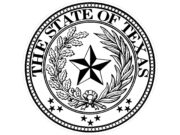PDF of the letter available here
Dear Representative:
The Center for Competitive Politics (CCP)[1] writes in support of H.R. 5053, the “Preventing IRS Abuse and Protecting Free Speech Act,” sponsored by Representative Peter Roskam (R-IL). This sensible and much-needed measure would end the statutory requirement that the Internal Revenue Service (IRS) collect sensitive information on nonprofit tax returns, detailing the names and addresses of significant donors to every charity in the nation, and prohibit the agency from collecting similar data from all nonprofit groups, save for narrowly-tailored exceptions.
More specifically, the measure would eliminate an outdated and ineffective portion of the tax code (Form 990, Schedule B) that serves no legitimate function as a regulatory tool for the agency, puts the privacy of American citizens at risk, and heightens the odds of politically motivated abuse by government officials.
Based on IRS data, we estimate providing this donor information on tax returns costs charities and other nonprofit groups $63 million per year – money that could be better spent on program activities by charities and nonprofits.
IRS Commissioner John Koskinen and IRS Director of Exempt Organizations, Tamera Ripperda, have both recently said that the IRS is already considering dropping the donor reporting requirement on Form 990, Schedule B because the agency has not found it useful for its oversight of tax-exempt groups and must expend significant resources to protect the confidentiality of the donors as required by law.
I. The IRS has failed to safeguard the private data of donors to charities.
The government has long acknowledged that information about the names and addresses of donors to charitable organizations is sensitive information that should remain private. Accordingly, the IRS is statutorily required to respect the privacy of this information and prevent its public disclosure. Unfortunately, the IRS has proven it is incapable of maintaining donor privacy.
The IRS itself has indicated a desire to end such data collection on Form 990, Schedule B. It is widely believed the IRS is not using the data. There have also been repeated, often unintentional, leaks of this data by the IRS. Finally, the agency has expressed concern about the cost and practicality of protecting the privacy of this data in response to bulk Freedom of Information Act requests.
In short, the IRS has proven time and again that it cannot be trusted with the task of protecting the private data of charitable organizations or the privacy of contributors to those organizations, nor with administering the tax law with regard to these organizations in an unbiased manner. Given these concerns, abolishing the Form 990, Schedule B is necessary to prevent the serious and unnecessary risk of future abuse to donors and charities.
II. The IRS does not require donor information to enforce tax law.
Simply put, the elimination of the Form 990, Schedule B would in no way hinder the ability of the IRS to enforce regulations applicable to nonprofit groups. Two primary arguments have been articulated to the contrary arguing that the IRS needs this private information, and neither holds merit.
First, it has been suggested that without the Schedule B, charitable organizations would be able to act for private gain and not their established public purpose. However, H.R. 5053 allows the IRS to collect identifying information for officers, directors, and highly-compensated employees. Mass collection of major donor information is neither a necessary or sufficient tool to combat this type of fraud. Additionally, the IRS has an array of other information it gathers on organizational tax returns that is useful in detecting bad actors attempting to use charities for private gain.
The insufficiency of the Schedule B as a law enforcement tool was highlighted in a recent court battle in California. In the case, Americans for Prosperity Foundation (AFPF) v. Harris, the investigative auditor for the Attorney General testified that in the 540 investigations of nonprofit activity conducted by the state of California, just five relied on the IRS Schedule B. Further, in those five cases, the investigator could not recall if an unredacted Schedule B was part of the initial investigation. And, as the District Court’s decision in AFPF v. Harris notes, “even in instances where a Schedule B was relied on, the relevant information it contained could have been obtained from other sources.”[2] IRS investigators have even greater tools and resources than the state of California. Form 990, Schedule B is, at best, redundant to any IRS investigation of fraud by a nonprofit group.
Second, some have argued that the Form 990, Schedule B is a necessary tool to prevent foreign contributions from influencing U.S. elections. As CCP outlined in an earlier letter,[3] such concerns are unfounded. Several protections in the law already exist to prevent foreign influence – most importantly the Bank Secrecy Act, which mandates the reporting of “any suspicious transaction relevant to a possible violation of law.” The Form 990, Schedule B, furthermore, does not aid in the detection of foreign influence, as foreign individuals are legally allowed to contribute to American nonprofits as long as the donations are segregated from general funds that may be used to engage in political speech. The Form 990, Schedule B, therefore, is not currently being used (nor could it be used) to monitor illegitimate foreign donations. Claims that H.R. 5053 would increase foreign influence in elections is little more than scaremongering.
* * *
For the above reasons, the Center for Competitive Politics strongly supports H.R. 5053. IRS Form 990, Schedule B serves no benefit to the IRS or American citizens. When the IRS has received information from the Schedule B, the agency has shown an inability to keep donor information private, and, in so doing, has violated the speech and association rights of Americans and nonprofits. As the IRS itself has acknowledged, the benefits of this Form do not outweigh the costs. To help prevent future IRS abuse, Congress should enact H.R. 5053.
Sincerely,
David Keating
President
https://ifs-site.mysitebuild.com/wp-content/uploads/2016/06/2016-06-13_Keating-Support-Letter_US_HR-5053_Elimination-Of-Form-990-Schedule-B.pdf
[1] The Center for Competitive Politics is a nonpartisan, nonprofit 501(c)(3) organization that promotes and protects the First Amendment political rights of speech, assembly, and petition. It was founded in 2005 by Bradley A. Smith, a former Chairman of the Federal Election Commission. In addition to scholarly and educational work, the Center is actively involved in targeted litigation against unconstitutional laws at both the state and federal levels. For instance, we presently represent nonprofit, incorporated educational associations in challenges to state campaign finance laws in Delaware and Utah. We are also involved in litigation against the state of California.
[2] Americans for Prosperity Found. v. Harris, 14-9448, 2016 U.S. Dist. LEXIS 53679 at *7 (C.D. Ca. Apr. 21, 2016) (citing (Bauman Test. 3/4/16, p. 31:8-32:10)).
[3] See David Keating, “Comments to Representative Peter Roskam Rebutting Unfounded Arguments about H.R. 5053 (“Preventing IRS Abuse and Protecting Free Speech Act”),” Center for Competitive Politics. Retrieved on June 13, 2016. Available at: https://ifs-site.mysitebuild.com/wp-content/uploads/2016/04/2016-04-28_Keating-Comments_House_HR-5053_Anti-First-Amendment-Groups.pdf (April 28, 2016).














